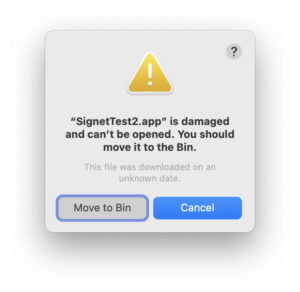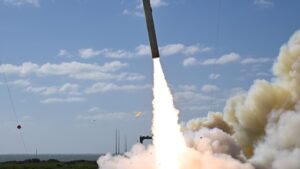The Vision Pro is a flop… just like the iPod

Welcome to our weekly Apple Breakfast column, which includes all the Apple news you missed last week in a handy bite-sized roundup. We call it Apple Breakfast because we think it goes great with a Monday morning cup of coffee or tea, but it’s cool if you want to give it a read during lunch or dinner hours too.
Slow starters
Over the years (if slightly less often in recent times) Apple has racked up some of the greatest-ever product launches. Iconic devices such as the iMac, iPod, iPhone, and AirPods have delivered positive reviews, huge sales, and massive cultural impact. At times it felt like the hits would never stop coming.
But every successful product is successful in its own way, and some of the names above were quicker out of the blocks than others. The common idea of a Cupertino conveyor belt, hit after hit in uniform succession, fails to appreciate the truly unique nature of the iPhone. Never before has a single product made such an obscene amount of money, somehow combining G-force acceleration in the first stage of its existence with year-on-year consistency for a decade thereafter.
So when we look disapprovingly at latter-day Apple products and complain that they’re not as successful as the golden-age classics, it’s important to be clear about which classics we’re using for comparison. An ambitious innovation such as Vision Pro may not ever match the iPhone’s success by any conceivable metric… because nothing ever has and more than likely nothing ever will. But there are other analogies we could draw that would make Cupertino’s accountants feel rather better.
The iPod, most would agree, was a tremendous hit. It made a lot of money, saved Apple from the brink of failure, and is so visually iconic that it’s on the books at MoMA and the Smithsonian. But it wasn’t always obvious that this would be the case, and it took a little time, and multiple versions, before it became a phenomenon.
So let’s look again at the points of similarity between Vision Pro (flop) and iPod (all-time classic hit). Both started out facing competition from rival companies more experienced in the field: Compaq and Creative Labs in 2001; Meta in 2024. Both came under criticism on price: $3,499 is undoubtedly a lot for an augmented-reality headset in 2024, but $399 was extremely highfor an MP3 player in 2001—albeit justified, in the opinion of our reviewer.
It wasn’t until the launch of cheaper and more portable mini and shuffle versions of the iPod that it truly took off, and the same was always likely to be the case for the Vision Pro (or rather, non-Pro). It isn’t the end of the world if you’ve got deep pockets like Apple, for the first generation of a product to be perceived as an interesting failure, a glimpse of what’s possible rather than a flawless fulfillment of it.
Vision Pro, like the iPod before it, is doing new things, and that entails both risk and a need for time so people can get used to its ideas. The first iPod was innovative in its use of FireWire, plentiful storage, and clever hardware controls, so innovative in fact that following the launch of the iTunes Music Store just three years later, it would ultimately save the music industry. It was built for the tech landscape of the future and helped to usher it in. Just as Vision Pro is designed with an eye on the world a decade from now when the smartphone has been replaced as the primary computing platform by… something else.
For every iPod, of course, there are a hundred other products that tried to anticipate the future and got it wrong. It’s entirely possible that wearable computing isn’t what’s next, for all Apple’s efforts to make it happen, and if so that would condemn Vision Pro to genuine failure. But the point is that it’s too early to tell, and Apple could yet have another classic on its hands.
Foundry
Trending: Top stories
The one device that really needs Apple Intelligence isn’t getting it.
Why Steve Jobs would have hated iOS 18’s biggest feature.
Apple’s failures show the limits of its ambition.
These Apple Intelligence and Siri features are coming after the iOS 18 launch.
Why Roman Loyola can’t wait to switch to a thinner MacBook Pro.
Apple discontinues its ‘Pay Later’ service ahead of expanded loan offerings.
Podcast of the week
This week we continue our follow-up coverage of Apple’s Worldwide Developers Conference with a discussion about iPadOS 18, watchOS 11, visionOS 2, and the stuff Apple didn’t tell us about! It’s all in this episode of the Macworld Podcast! Be sure to listen in!
You can catch every episode of the Macworld Podcast on Spotify, Soundcloud, the Podcasts app, or our own site.
Reviews corner
11-inch iPad Air M2 review: Solid but unexciting mid-ranger.
Best antivirus for Mac: Top security software compared for 2024.
Best games for Mac: A-list games you can play on your Mac.
Best external SSD for Mac: Expand storage and add some serious speed.
The rumor mill
Thin is in! Apple plans to slim down all of its products to match the iPad Pro.
Report: Apple kills Vision Pro 2 to focus on lower-cost headset for 2025.
Tech breakthrough could mean vastly improved battery life for Apple Watch and AirPods.
The Apple Watch Series 10 won’t have a small option anymore, report claims.
Software updates, bugs, and problems
Help! My iPhone 15 Pro Max’s battery health is suddenly fading fast.
Apple Intelligence and other key iOS 18 features won’t come to the EU this year.
iOS 17.6 beta arrives with iOS 18 already in testing.
Apple releases macOS 14.6 beta.
And with that, we’re done for this week’s Apple Breakfast. If you’d like to get regular roundups, sign up for our newsletters. You can also follow us on Facebook, Threads, or Twitter for discussion of breaking Apple news stories. See you next Monday, and stay Appley.
Apple Inc



